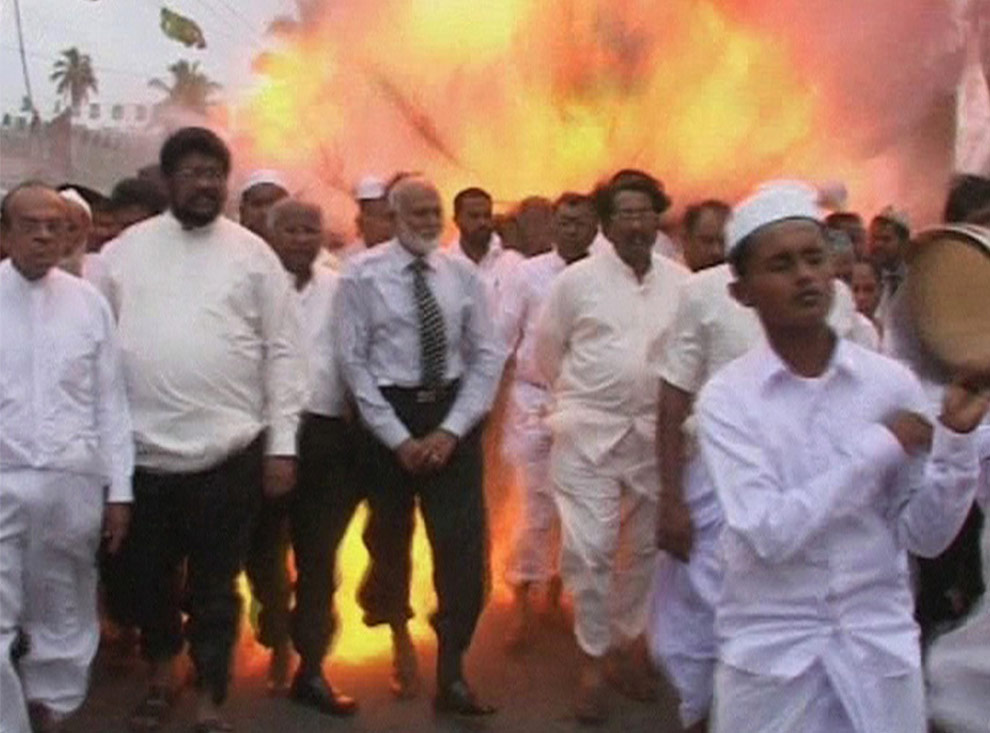Some Critical Notes on the Non-Tamil Identity of the Muslims of Sri Lanka, and on Tamil–Muslim Relations
Abstract: The ethnic civil war between the Tamil and Sinhalese communities that ravaged Sri Lanka inthe late twentieth and early twenty-first centuries and which ended in May 2009 has attracted great interest from scholars of ethnic identity. Both the Tamil and Sinhalese ethnic groups employ language—Tamil and Sinhalese—as their primary ethnic marker to support their distinct ethnic formations. As for the Muslims, while the vast majority living in the north and east share many things with the Tamils there including the Tamil language, Muslims in the south have divergent interests based more on trade and commerce. Under a predominantly southern leadership, the Muslims who speak the Tamil language with some borrowed Arabic words seek a social formation based on religion to win a distinct ethnic recognition—distinct from the Tamil ethnic group. The result has been a deep rift between the Muslims and the Tamils, making a permanent solution to Sri Lanka’s problems elusive.

This image made from video shows an explosion from a suspected Tamil Tiger bomb as it happened among a group of Sri Lankan Muslim men during a religious procession
These issues have been relatively under-researched. This study looks at Sri Lankan Muslim identity and the Muslims’ relations with Tamils. In particular it interrogates some aspects of the identity discourse developed over the years by the south-centred Muslim elites who align with the Sinhalese political class.
We argue that the Tamils’ northern leadership has been insensitive to Muslims—that they have played into the hands of the Colombo government by persecuting Muslims in their midst on the pretext of responding to government-instigated violence among local Muslim youths.
This article co authored by Dr A.R.M.Imtiyaz, Temple University, Philadelphia and Dr S.R.H. Hoole of the University of Jaffna was published in South Asia: Journal of South Asia Studies ( Vol.XXXIV, no.2, August 2011)
Please read the full article here: Some Critical Notes on the Non-Tamil Identity of the Muslims of Sri Lanka, and on Tamil–Muslim Relations

August 8, 2011 at 1:10 pm
Muslims shuld never forget who made birth to them in sri lanka. Yes Jamaldeen. i know muslims came from Iraq and Yemen ..for around 800 years ago.. They did not came to sri lanka with WIFES.
They got ether married to singhalese or tamil girls … So you muslims is from our woman anyway.
Muslims are afraid that one day the singhalese will wake up and try to take over the muslims buissnes…. that is the real truth… But what is annoying me as Christian singhalese…is when Muslims get married to singhala girls they allways need to convert to ISLAM. The otherway is not ok…
But somethimes when a NON muslims is in love with a muslim girl…whole family going after this boy ..to break it up.. Patetic…
Its not for NO reason why europeans is in war with islam
August 4, 2011 at 5:32 am
We muslims to be proud of our heritage,should adhere to some definition of a sri lankan muslim, by way of a PROPER Language, Tamil/Sinhala which ever they choose to speak,as their mother tongue. We cannot expect justice from parties who are predominantly Tamils, when we have in no way proved so.
Tamil muslim relations have never been smooth,because of our double standard dealings, for the sake of Business, for which we are well known.
We have a a very bad HABBIT OF CUTTING OTHERS for the sake of ours.
We have to be islamists, not fanatics, follow the religion in the said way, and choose your way oflife with other communities, and speak either
language properly for future conducts.